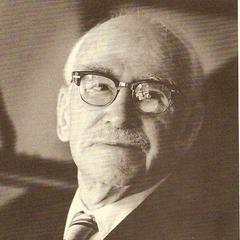David Hume Quotes - Page 8

All inferences from experience... are effects of custom, not of reasoning.
"An Enquiry Concerning Human Understanding". Book by David Hume, V: Skeptical Solution of these Doubts, Part I, 1739 - 1740.
David Hume (1874). “A Treatise on Human Nature: Being an Attempt to Introduce the Experimental Method of Reasoning Into Moral Subjects; and Dialogues Concerning Natural Religion”, p.152
David Hume (1784). “Essays and Treatises on Several Subjects”, p.118
David Hume, Geoffrey Sayre-McCord “Moral Philosophy”, Hackett Publishing
David Hume (1759). “The Commonwealth, and the reigns of Charles II. and James II”, p.450
David Hume, Tom L. Beauchamp (2006). “An Enquiry Concerning the Principles of Morals: A Critical Edition”, p.5, Oxford University Press
David Hume (1758). “Essays and Treatises on several subjects, etc. New edition”, p.368
David Hume (1782). “The History of England, from the Invasion of Julius Caesar to the Revolution of 1688”, p.197
Philosophy would render us entirely Pyrrhonian, were not nature too strong for it.
David Hume (1999). “An Enquiry Concerning Human Understanding”, p.39, Open Court
David Hume (1758). “Essays and Treatises on several subjects, etc. New edition”, p.311
David Hume (1817). “Philosophical Essays: On Morals, Literature, and Politics”, p.166
David Hume, Eric Steinberg (1993). “An Enquiry Concerning Human Understanding ; [with] A Letter from a Gentleman to His Friend in Edinburgh ; [and] An Abstract of a Treatise of Human Nature”, p.73, Hackett Publishing
David Hume (2016). “Delphi Complete Works of David Hume (Illustrated)”, p.1058, Delphi Classics
David Hume (2012). “An Enquiry Concerning Human Understanding”, p.4, Courier Corporation
David Hume (2012). “An Enquiry Concerning Human Understanding”, p.123, tredition
An Enquiry Concerning Human Understanding sec. 12, pt. 3 (1748)
David Hume (1826). “The Philosophical Works: Including All the Essays, and Exhibiting the More Important Alterations and Corrections in the Successive Ed. Publ. by the Author”, p.9
David Hume (2010). “Moral and Political Philosophy”, p.142, Simon and Schuster
David Hume (2016). “Delphi Complete Works of David Hume (Illustrated)”, p.1314, Delphi Classics
David Hume, Geoffrey Sayre-McCord “Moral Philosophy”, Hackett Publishing
David Hume (1788). “Essays, moral, political, and literary.- v. 2. An inquiry concerning human understanding. A dissertation on the passions. An inquiry concerning the principles of morals. The natural history of religion”, p.72






